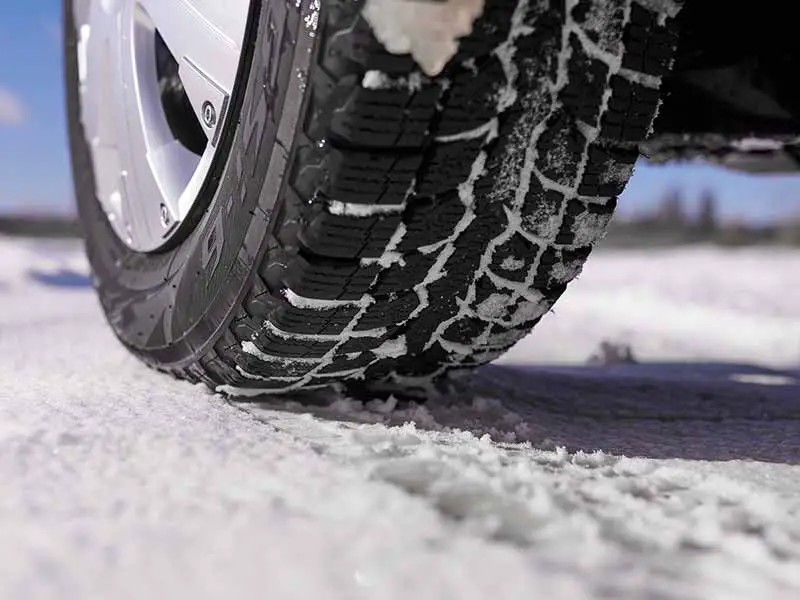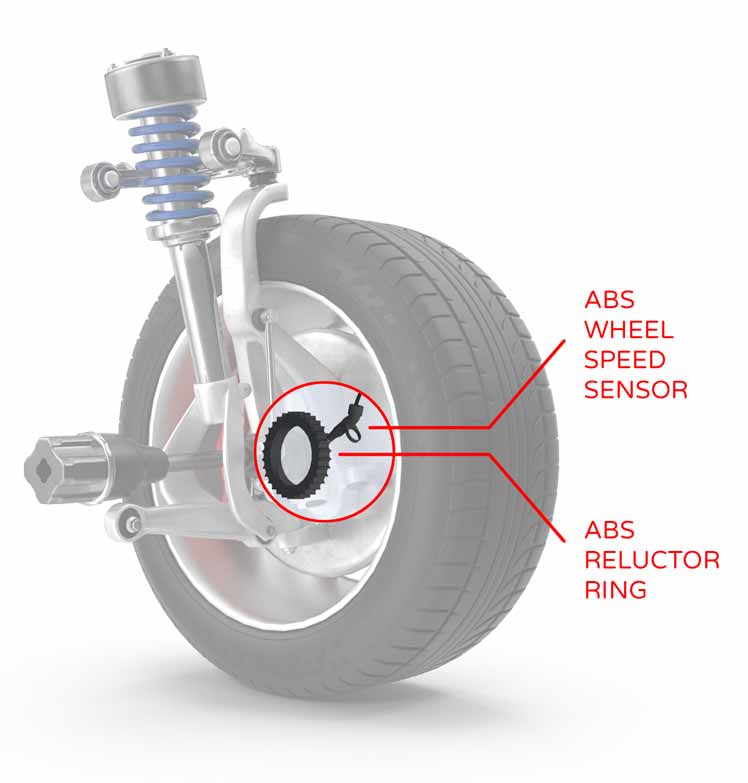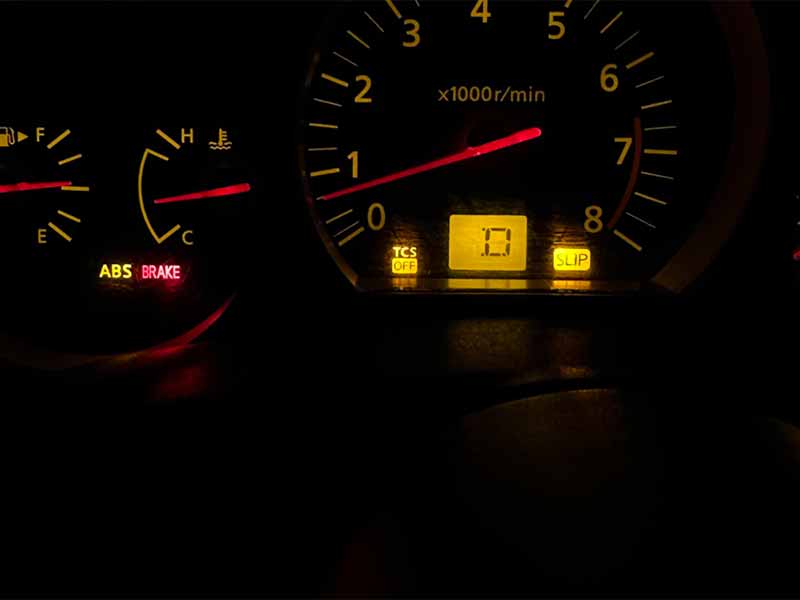Ever found yourself puzzled by that mysterious “TCS Off” light on your car’s dashboard? You’re not alone. Understanding this feature could be the difference between a smooth, safe ride and a potentially dangerous situation on the road.
What Does “TCS Off” Mean?
“TCS Off” means that your vehicle’s Traction Control System is disabled. When this system is off, your car is more likely to experience wheel spin and you risk losing traction, especially in slippery conditions.
In this article, we’ll explore what the Traction Control System (TCS) is, how it works, and why it’s crucial for your vehicle’s performance and safety. We’ll also delve into specific car models to understand what “TCS Off” means for them, and provide practical tips on when to keep TCS on or off.
Let’s take a closer look.

What is TCS and How Does It Work?
TCS stands for your vehicle’s Traction Control System. This is a feature in most modern cars and trucks that helps your vehicle maintain grip on the road. Imagine you’re driving on a rainy day and the roads are slippery. The traction control system helps make sure your tires don’t lose traction, preventing your vehicle from skidding or spinning out of control.
How TCS Works with Your Tires
TCS is all about your tires. When you accelerate, your vehicle’s engine sends power to the wheels. If one or more of your tires start to spin faster than they should—maybe because the road is wet or icy—TCS steps in. Here’s how:
- Wheel Speed Sensors: Your car has sensors on each wheel that monitor how fast the tires are spinning.
- Control Unit: These sensors send information to a control unit in your car, often the same one that controls the Anti-lock Braking System (ABS).
- Adjustments: If the control unit detects that a tire is losing grip, it can reduce engine power or apply the brakes to that specific wheel.
The Role of ABS
You might have heard of ABS, which stands for Anti-lock Braking System. ABS and TCS often work together. While ABS prevents your wheels from locking up when you brake, TCS prevents your wheels from spinning out of control when you accelerate. Both systems use the same sensors and control unit to keep your tires in check.
Normal Braking vs Traction Control
- Normal Braking: When you press the brake pedal, you’re using the car’s normal braking system. This system applies equal force to all four wheels.
- TCS Activation: When TCS activates, it doesn’t apply equal force to all wheels. Instead, it targets the specific wheel or wheels that are losing grip.

What Happens When TCS is Off?
When you turn off the Traction Control System (TCS), the first thing that changes is how your tires interact with the road. Here’s what happens:
- Loss of Automated Control: The system that usually adjusts engine power or applies brakes to specific wheels will no longer do so.
- Increased Wheel Spin: Without TCS, your tires are more likely to spin if you accelerate too quickly, especially on slippery surfaces.
- Reduced Grip: Your tires may not grip the road as effectively, making it easier to skid or slide.
How Engine Power is Affected
Turning off TCS also has an impact on your vehicle’s engine power:
- Unrestricted Power: With TCS off, the engine sends power to the wheels without any restrictions.
- Potential for Wheel Spin: This can lead to wheel spin, causing the tires to spin since the traction control system is no longer limiting wheel spin for slippery road conditions.
Safety Implications
Driving with TCS off isn’t always unsafe, but it does come with risks:
- Increased Chance of Skidding: Without the automated help from TCS, your vehicle is more likely to skid, especially in wet or icy conditions.
- Harder to Control: It may become more challenging to control your vehicle, particularly during turns or when you need to avoid something suddenly.
When Might You Want TCS Off?
There are specific scenarios where turning off TCS could be beneficial:
- Off-Roading: When you’re driving on uneven terrain and need maximum power from your tires.
- Stuck in Snow or Mud: Sometimes, allowing the wheels to spin can help you get out of a tricky situation.

Why Does TCS Keep Showing Up on My Car?
If the Traction Control System (TCS) light keeps showing up on your dashboard, it’s not something to ignore. This persistent light could be a sign of various issues, ranging from minor to serious, and it directly impacts your tires’ performance and safety.
Common Reasons for a Persistent TCS Light
- Sensor Issues: One of the most common reasons for a TCS light to stay on is a problem with one of the wheel sensors. These sensors are crucial for the TCS to function correctly.
- Brake Problems: Since TCS works closely with your vehicle’s braking system, any issues with the brakes could trigger the TCS light.
- Tire Pressure: Believe it or not, something as simple as low tire pressure can cause the TCS light to come on.
What to Do When the TCS Light Stays On
- Check Tire Pressure: The first and easiest step is to check your tire pressure. If it’s low, inflating your tires to the correct pressure might turn off the Traction Control System light.
- Inspect Tires: Look for uneven wear or damage on your tires, as this can affect the TCS.
- Consult the Owner’s Manual: Your vehicle’s owner’s manual will provide information on how to address a persistent TCS light.
- Professional Help: If the light stays on despite your best efforts, it’s time to consult a professional. Ignoring it could lead to more severe problems down the line.
How a Persistent TCS Light Affects Your Tires
- Reduced Performance: If the TCS is not functioning correctly, your tires may not perform optimally, especially in challenging driving conditions.
- Safety Concerns: A malfunctioning TCS could compromise your vehicle’s safety, making it more prone to skidding or other types of accidents.
- Potential for Uneven Wear: Without a fully functional TCS, your tires could wear unevenly, requiring more frequent replacements.
Resetting TCS: Is It a Good Idea?
If you’ve addressed the issue causing the Traction Control System light to stay on, you might be tempted to reset the system yourself. However, this is generally not recommended unless you’re certain of the problem and its resolution. Resetting the TCS without fixing the underlying issue could give you a false sense of security.

How to Reset TCS and When Should You?
Resetting the Traction Control System (TCS) might seem like a quick fix when you see the TCS light illuminated on your dashboard. However, it’s essential to understand when resetting is appropriate and when it’s not, especially considering the system’s impact on your tires and overall vehicle safety.
Steps to Reset TCS
Resetting TCS usually involves a series of steps that can vary depending on your vehicle’s make and model. Here’s a general guide:
- Turn Off the Engine: Make sure your vehicle is off and safely parked.
- Locate the TCS Button: Find the TCS or ESC (Electronic Stability Control) button on your dashboard or console.
- Press and Hold: Press and hold the button for a few seconds until you hear a chime or see a message on your dashboard.
- Restart the Engine: Turn your vehicle back on to see if the traction control light has turned off.
Note: Always consult your owner’s manual for specific instructions tailored to your car or truck.
When is it Appropriate to Reset TCS?
- After Minor Issues: If you’ve identified a minor issue like low tire pressure and have corrected it, resetting the TCS might be appropriate.
- Post-Maintenance: After certain types of vehicle maintenance, a TCS reset might be necessary to recalibrate the system.
When Should You Avoid Resetting TCS?
- Unknown Issues: If you’re not sure why the traction control light is on, resetting the system could be risky.
- Recurring Problems: If the TCS light keeps coming back after multiple resets, this is a sign of a more serious issue that needs professional attention.
The Impact of Resetting TCS on Your Tires
- Temporary Relief: Resetting the TCS might turn off the warning light temporarily, but it won’t fix underlying issues affecting your tires.
- Potential for Uneven Wear: If the TCS isn’t functioning correctly and you simply reset it without fixing the problem, your tires could wear unevenly.
- Safety Risks: A malfunctioning TCS could compromise the safety of your vehicle, making it more prone to skidding or other types of accidents.
Consult a Professional: When and Why
- Persistent Issues: If the TCS light doesn’t go away after a reset or keeps coming back, it’s time to consult a professional.
- Performance Concerns: If you notice a decline in your vehicle’s performance, especially in how the tires grip the road, seek professional help immediately.

How to Fix TCS on Your Car
If the Traction Control System (TCS) light stays on or frequently appears on your dashboard, it’s a sign that something might be wrong. This issue could affect your tires’ performance and your overall driving safety. Here’s how to approach fixing it.
Common Issues and DIY Fixes
Before heading to a mechanic, there are some common issues you can check and possibly fix yourself:
- Tire Pressure: Low tire pressure can trigger the traction control warning light. Make sure all tires are inflated to the recommended levels.
- Wheel Speed Sensor: Dirt or debris on the wheel sensors can interfere with TCS functioning. Cleaning the sensors might solve the issue.
- Brake Fluid: Low brake fluid levels can also affect TCS. Check and refill the brake fluid if necessary.
When DIY Isn’t Enough
Sometimes the issue with TCS isn’t something you can fix on your own. Here are signs that you need professional help:
- Persistent Traction Control Light: If the traction control system light doesn’t go away after trying DIY fixes, it’s time to consult a mechanic.
- Performance Issues: If you notice your vehicle isn’t handling well, especially in terms of tire grip or braking, don’t delay in seeking professional advice.
What a Professional Will Do
When you take your car to a mechanic for TCS issues, here’s what you can expect:
- Diagnostic Tests: The mechanic will run diagnostic tests to identify the issue with the TCS.
- Inspection: A thorough inspection of the related systems, like the ABS control unit and braking system, will be conducted.
- Repair or Replacement: Depending on the issue, parts like wheel sensors or the ABS control unit may need to be repaired or replaced.
Cost Considerations
- Diagnostic Fees: Most mechanics will charge a fee for diagnostic tests.
- Part Replacement: The cost of replacing parts like wheel sensors can vary widely.
- Labor Costs: Depending on the complexity of the issue, labor costs can add up.
Resources
Below are some links you may find helpful when learning about tires
- TCS off switch – Mazda
- What is the traction control system (TCS) in a car, and what does the TCS light mean? – KIA
Final Thoughts
Understanding your vehicle’s Traction Control System (TCS) is more than just decoding dashboard lights; it’s about ensuring optimal tire performance and overall safety.
When the traction control system detects wheel spin or slip, it intervenes to help you maintain control, reducing the risk of accidents and uneven tire wear. However, there are situations where turning off TCS might be beneficial, such as off-roading or when stuck in mud or snow.
Good luck and happy motoring.





